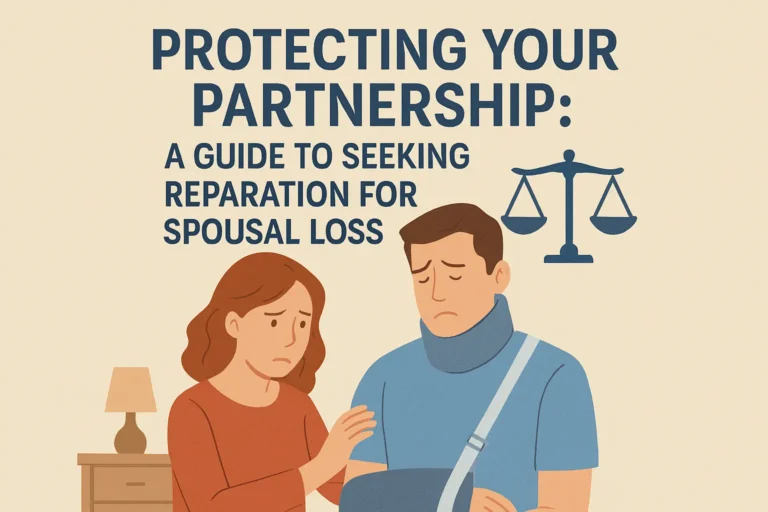You’re going about your usual routine when the unthinkable happens. Your spouse is gravely injured in a car crash, a fall, or due to a medical error. In an instant, your life is thrown into chaos. Beyond the urgent worry for their health and recovery, you start to see how deeply this event has disrupted your relationship and the rhythm of your everyday life together.
What you’re experiencing has a legal name: loss of consortium. And you may be entitled to compensation for it.
Understanding Loss of Consortium
The compensation for loss of consortium is a legal concept that recognizes the real damages you suffer when your spouse is injured due to someone else’s negligence. Think of it this way: marriage creates a partnership where both people contribute to the relationship in various ways. When one partner is seriously injured, the other loses many of the benefits of that partnership.
This isn’t just about romance or intimacy, though those are certainly part of it. Loss of consortium covers the complete picture of what you’ve lost in your marriage.
What Does Loss of Consortium Actually Cover?
The law recognizes several types of losses you might experience:
- Companionship and emotional support that your spouse previously provided
- Physical intimacy and affection
- Household services your spouse used to perform
- Social activities you used to enjoy together
- Your spouse’s guidance and advice in daily decisions
Let’s say your spouse was the one who always handled home repairs, cooked dinner, or helped the kids with homework. If their injury prevents them from doing these things, you’ve lost valuable services. Maybe they were your hiking buddy or the person you talked through problems with. That companionship loss is real and measurable.
The emotional impact matters too. Watching your spouse struggle with pain, depression, or disability takes a toll on you as well.
When You Might Have a Claim
Not every injury creates a valid loss of consortium claim. Generally, the injury must be severe enough to significantly impact your relationship. Courts look at whether the injury has caused a substantial change in your marriage dynamics.
Temporary injuries that heal completely usually don’t qualify. But if your spouse faces permanent disability, chronic pain, or long-term recovery, you likely have grounds for a claim.
The injury must also result from someone else’s negligence. This could include car accidents caused by reckless drivers, slip and falls due to unsafe conditions, or medical malpractice.
How Compensation Works
Loss of consortium claims are typically filed alongside your spouse’s injury lawsuit. You’re not suing separately – you’re both seeking damages from the same incident.
The compensation you might receive depends on several factors. Courts consider the strength of your marriage before the injury, how the injury has specifically affected your relationship, and your ages.
Taking Action
If you believe you have a loss of consortium claim, don’t wait. Most states have time limits for filing these lawsuits, typically two to three years from the date of injury.
Start by documenting how the injury has affected your daily life and relationship. Keep a journal noting changes in your routine, activities you can no longer enjoy together, and additional responsibilities you’ve had to take on.
Consider speaking with a personal injury attorney who can evaluate your situation. Many offer free consultations and work on contingency fees, meaning you don’t pay unless you win.
Seeking compensation isn’t about putting a price tag on your marriage. It’s about getting fair compensation for real losses you’ve suffered through no fault of your own.
